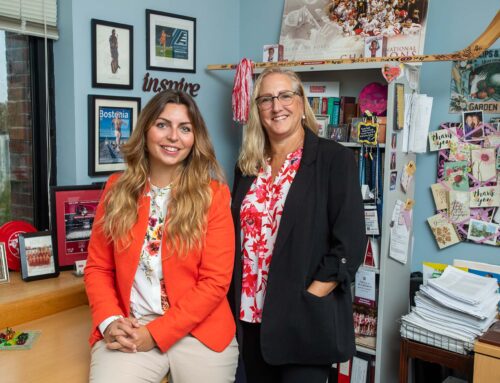The Scarlet – November 2015
Walden Behavioral Care Comes to Clark
Eating disorders like anorexia nervosa and bulimia nervosa are among the top mental illnesses that affect college students in America. On Tuesday, Nov. 3, the Resident Adviser (RA) Committee for Diversity and Awareness organized a discussion surrounding eating disorders on Clark’s campus and within the larger Worcester community. The event, “A Conversation About Eating Disorders,” brought together representatives from the Center for Counseling and Personal Growth (CPG), Residential Life and Housing (RLH), and Walden Behavioral Care, an eating disorder care and treatment center with a branch in Worcester.
With several locations in Massachusetts and one in Connecticut, Walden Behavioral Care has been treating patients for eating disorders and other psychiatric disorders for the past twelve years. Sarah-Eve Hamel attended the event as a representative of the Worcester branch. Hamel explained that the center treats mostly women, though the number of men coming in for treatment has been steadily increasing. She also explained that the amount of patients at the center generally changes based on the academic calendar. There is a lull in cases at the beginning of the academic year, but patient numbers rise as school officials begin to notice harmful behaviors. She also mentioned that many more college students in Worcester come to the center when schools are on vacation.
CPG counselor Kara Massie was also in attendance and provided insight into Clark’s role in working with students with eating disorders. With a clinical specialty in eating disorders, Massie is working with CPG to formalize eating disorder protocols at Clark. She explained that the center sees a lot of patients with a wide range of issues spanning the continuum of body image issues and eating disorders. Massie also said that CPG works closely with Health Services, a nutritionist, and the patient’s primary care physician to establish a course of action in the event of an extreme case. If the case is too extreme, Massie said, CPG will refer the Clark student to Walden Behavioral Care for more intensive therapy.
Amber Whitton, hall director for Dana and Hughes Halls and professional staff member of the RA Committee for Diversity and Awareness represented RLH at the meeting. Kate Summers (’18) and Isabel Miranda (’17), both RAs in Maywood Hall and members of the committee, were also at the event. Summers explained that she joined the committee to increase discussion on many issues that affect Clark students, including eating disorders.
Though CPG sponsors an Eating Disorder Awareness Week in February, there is little other discussion of the subject at Clark, she said — despite eating disorders being a very pervasive mental illness at all colleges in the US.
The dialogue began with the screening of a TEDx Talk by Laura Hill called “Eating Disorders from the Inside Out,” which explored eating disorders as both psychological and biological disorders. In the video, Hill compares brain functions of someone without anorexia to the brain functions of someone with anorexia.
Following the screening, Hamel led a discussion about eating disorders in general and at Clark. Attendees discussed why they thought Clark lacks dialogue on the topic, and it was agreed upon that the issue is ignored and stigmatized on campus since it’s viewed as a non-issue that does not affect Clarkies. Summers mentioned that while planning the event, someone asked her whether eating disorders were even an issue on Clark’s campus.
The conversation moved to what allies and friends of those with eating disorders can do. Whitton explained, “It’s not your burden to take on,” meaning a friend can empathize and talk to someone dealing with an eating disorder, but “don’t let it distress what you’re going through yourself.” Whitton emphasized self-care when helping friends and loved ones with eating disorders.
Massie echoed this idea, and explained that even counselors at CPG know their limitations when helping students. She also advised asking your friend with an eating disorder what they want from the relationship, and making sure it is within your abilities.
Whitton also recommended seeking advice from RAs and RLH staff members if you have an eating disorder or know someone who does. Though RAs and RLH staff are not trained counselors, they can help those struggling to find the correct resources to fit their needs, whether that be representatives from the Dean of Students office or a counselor at CPG.
When asked about the rumored waitlist at CPG, Massie explained that there are around ten people on the waiting list but that they have only been waiting a maximum of five days. If it is not a dire case, CPG should have an appointment time for them within a week. CPG does not currently have an administrative assistant, so the counselors do their own booking. However, emergency appointments can be booked through the Dean of Students Office if an urgent case arises.
####






